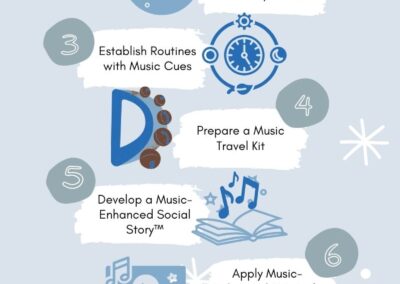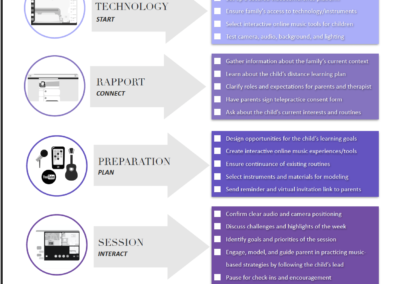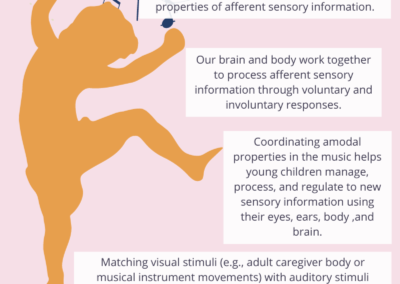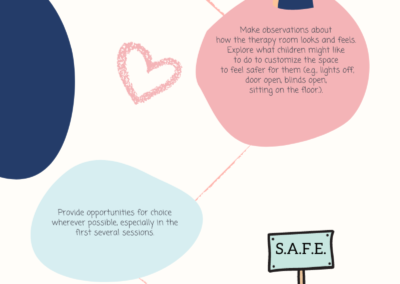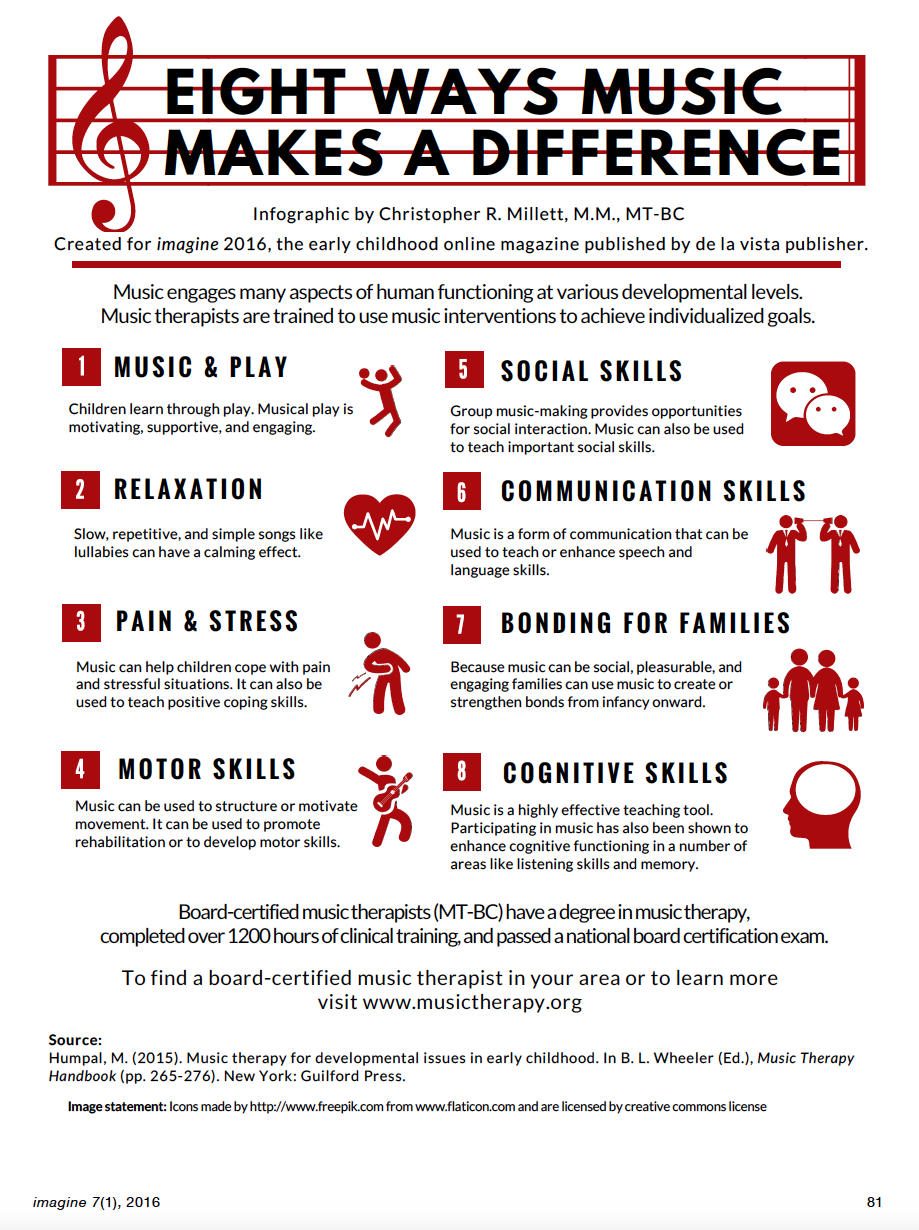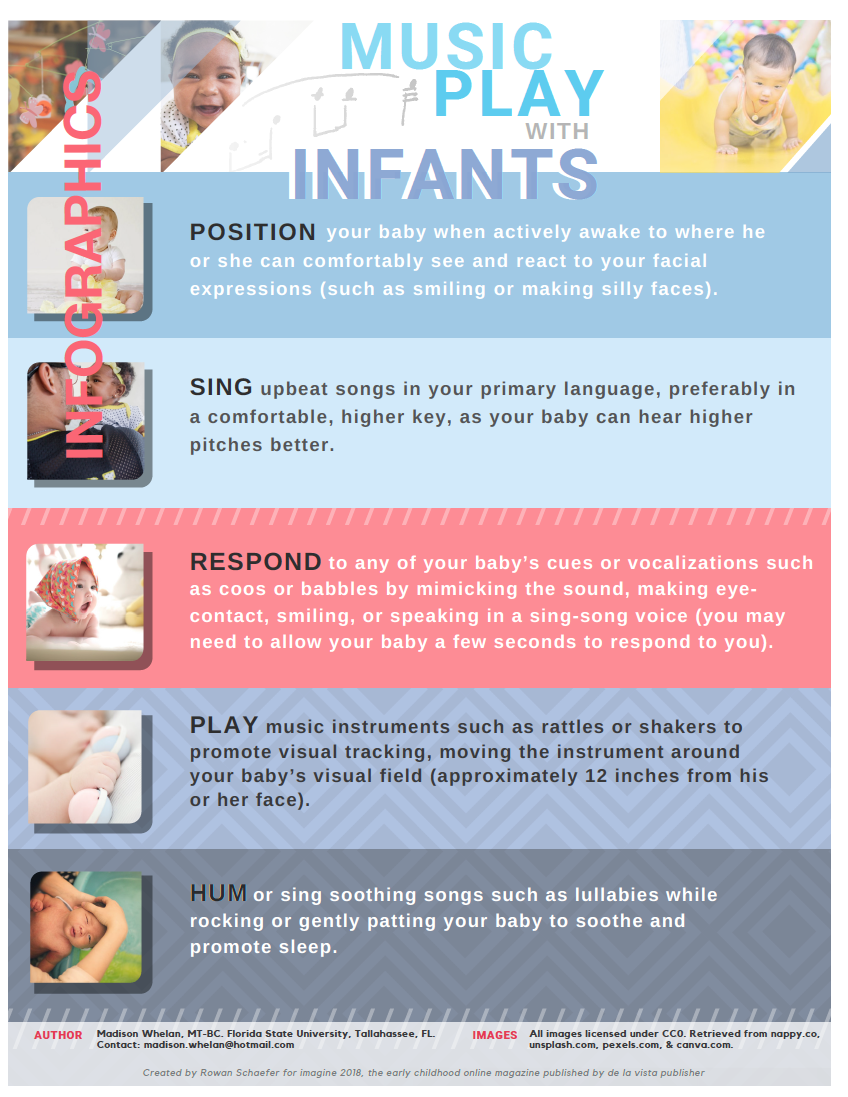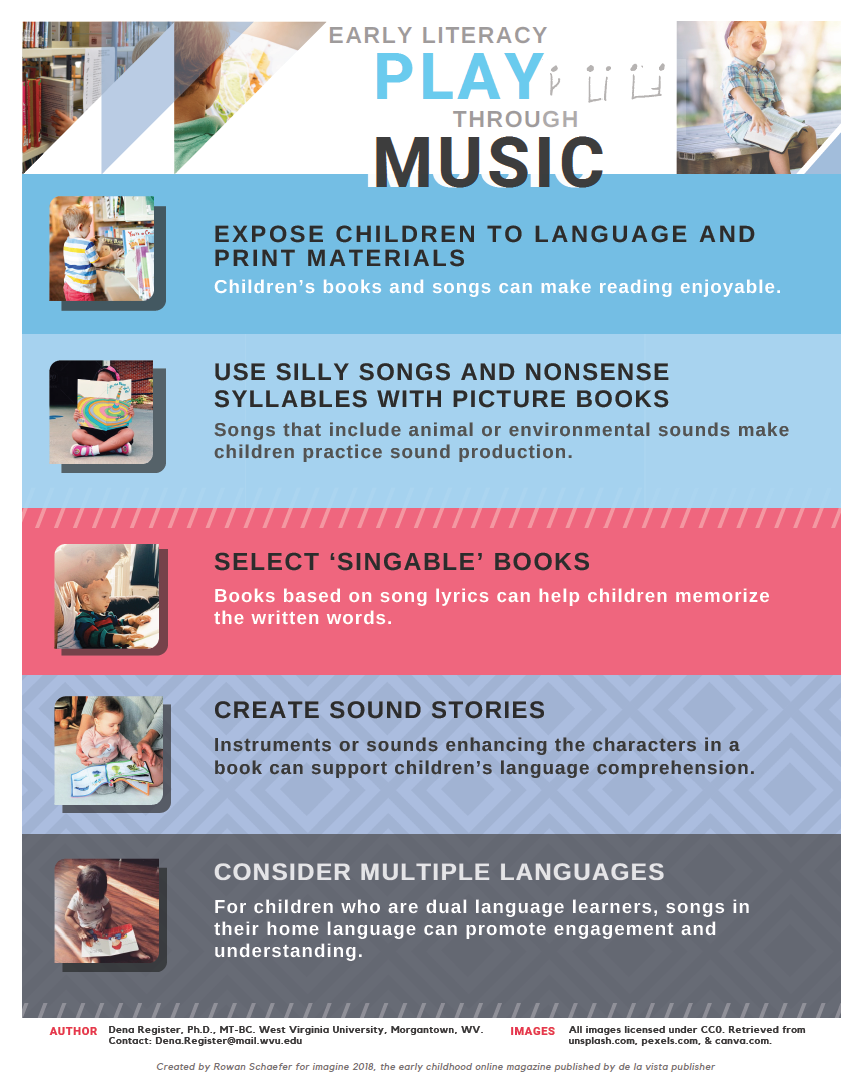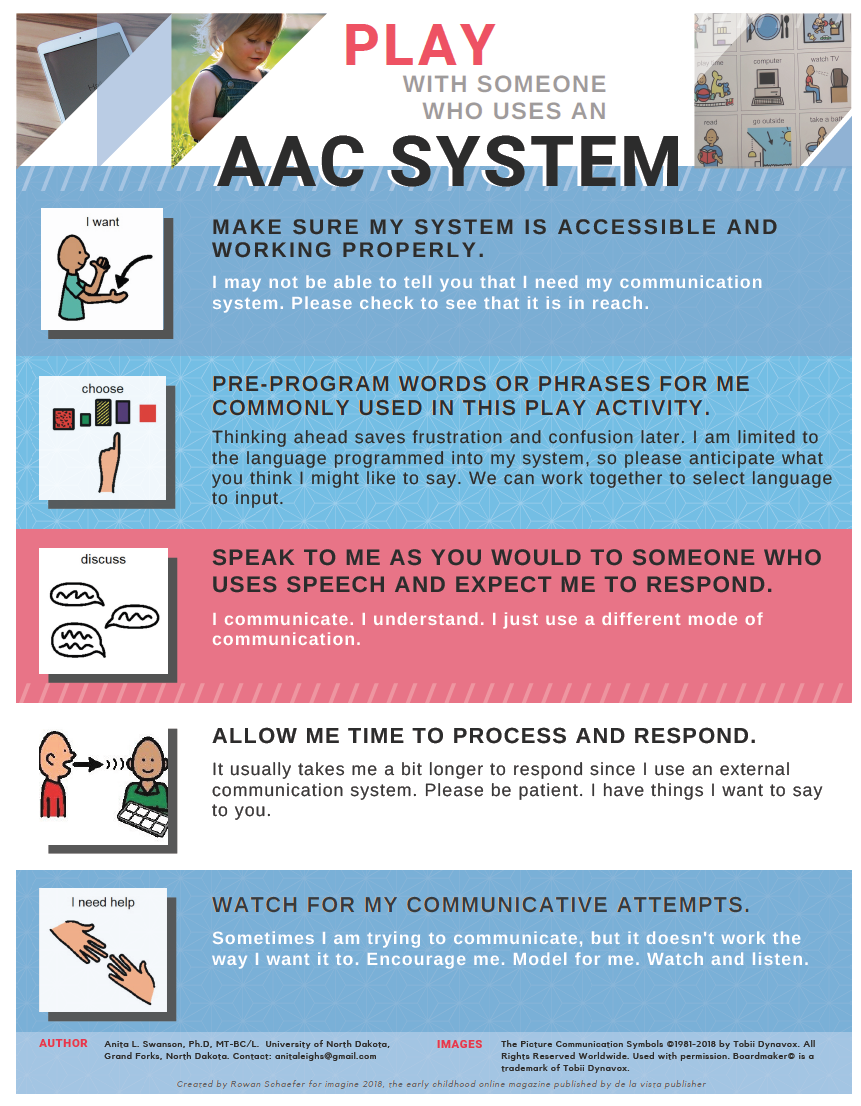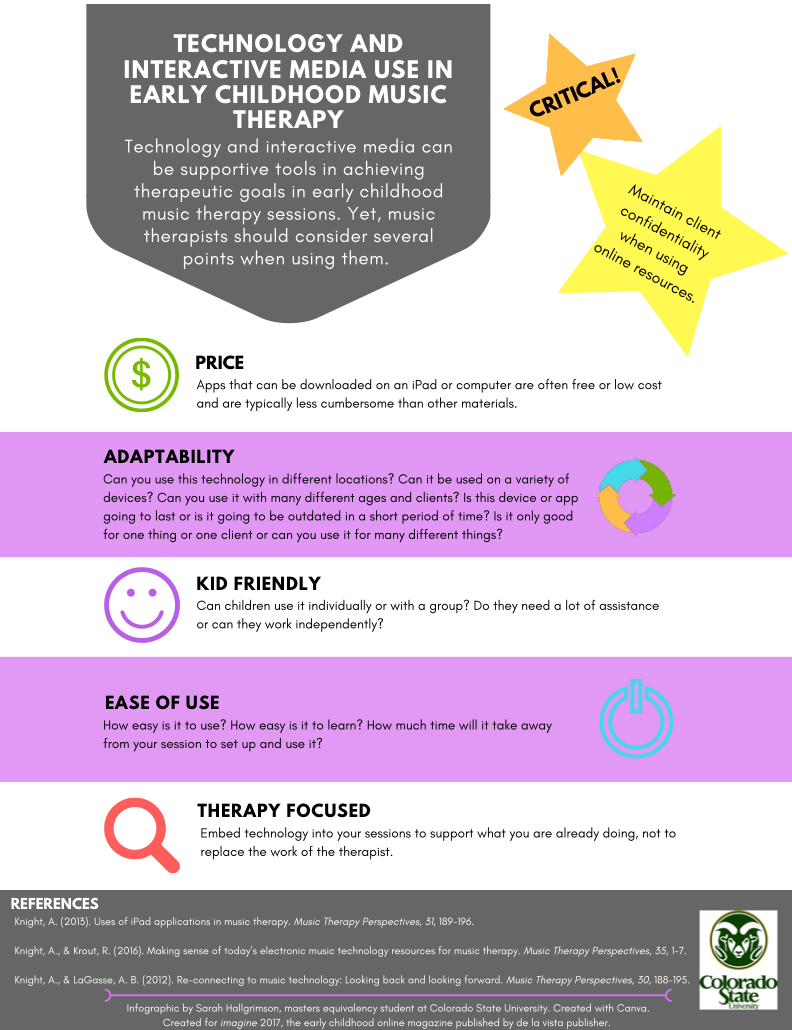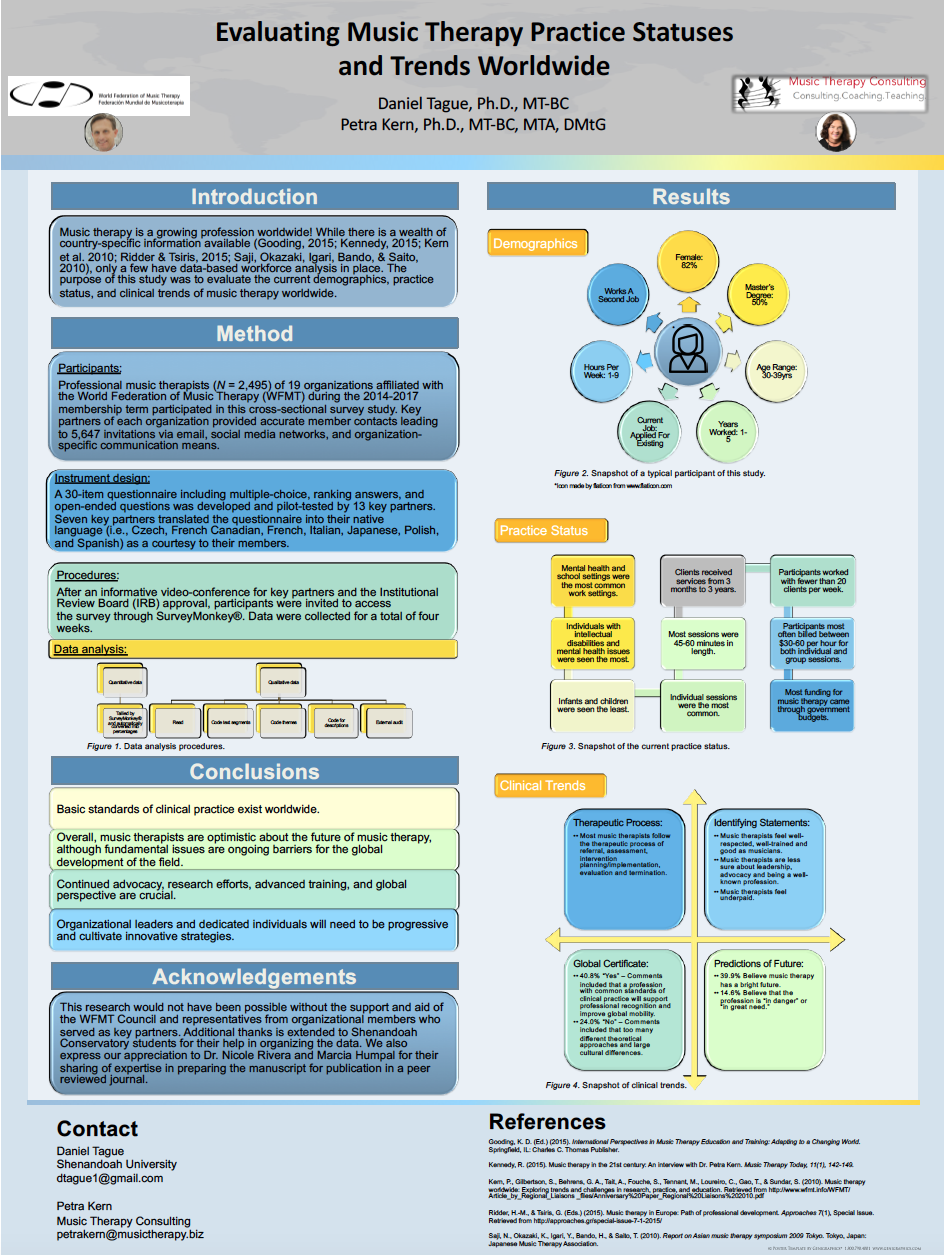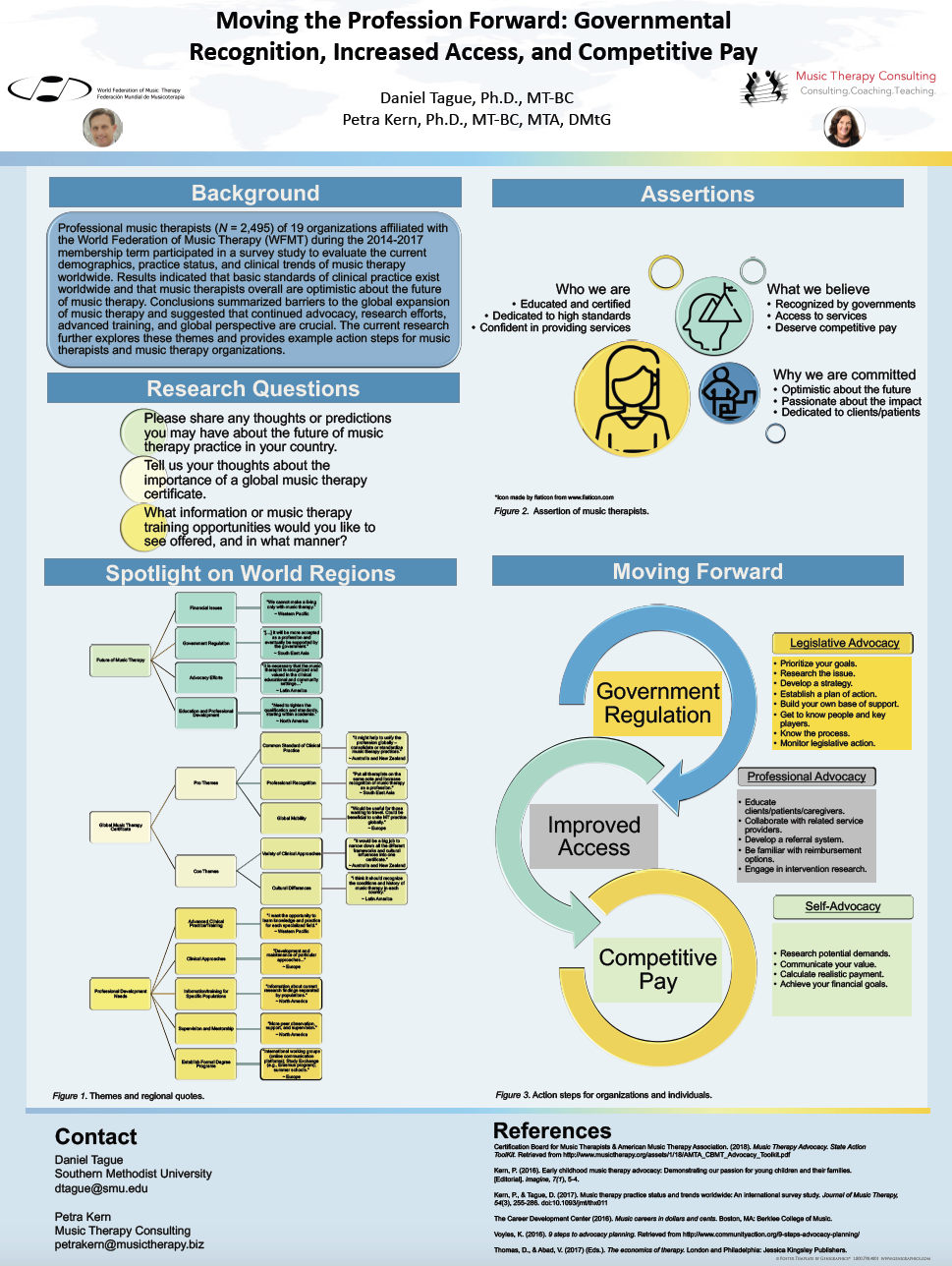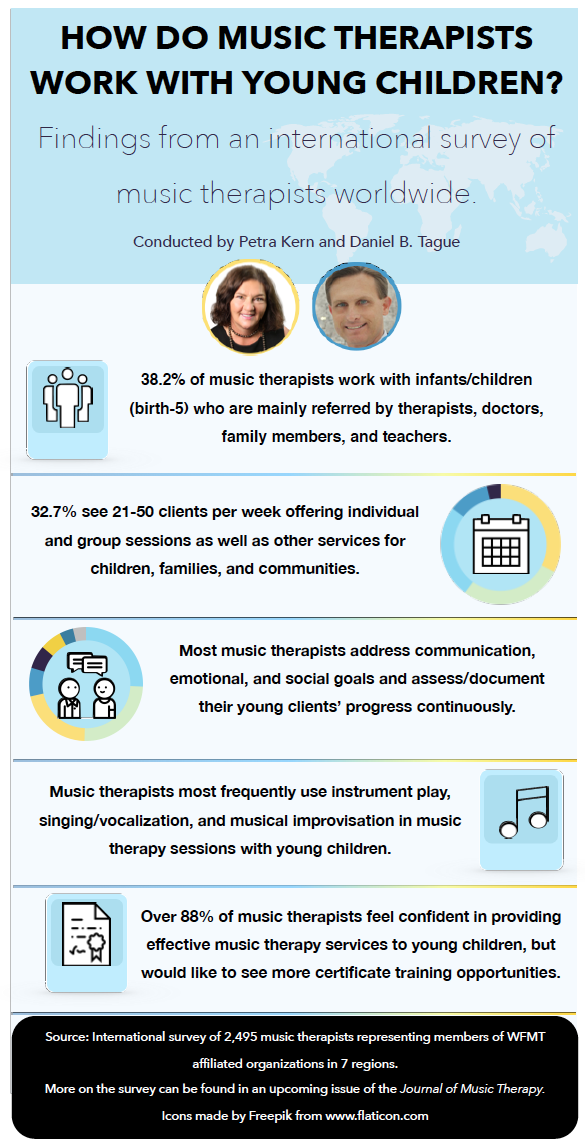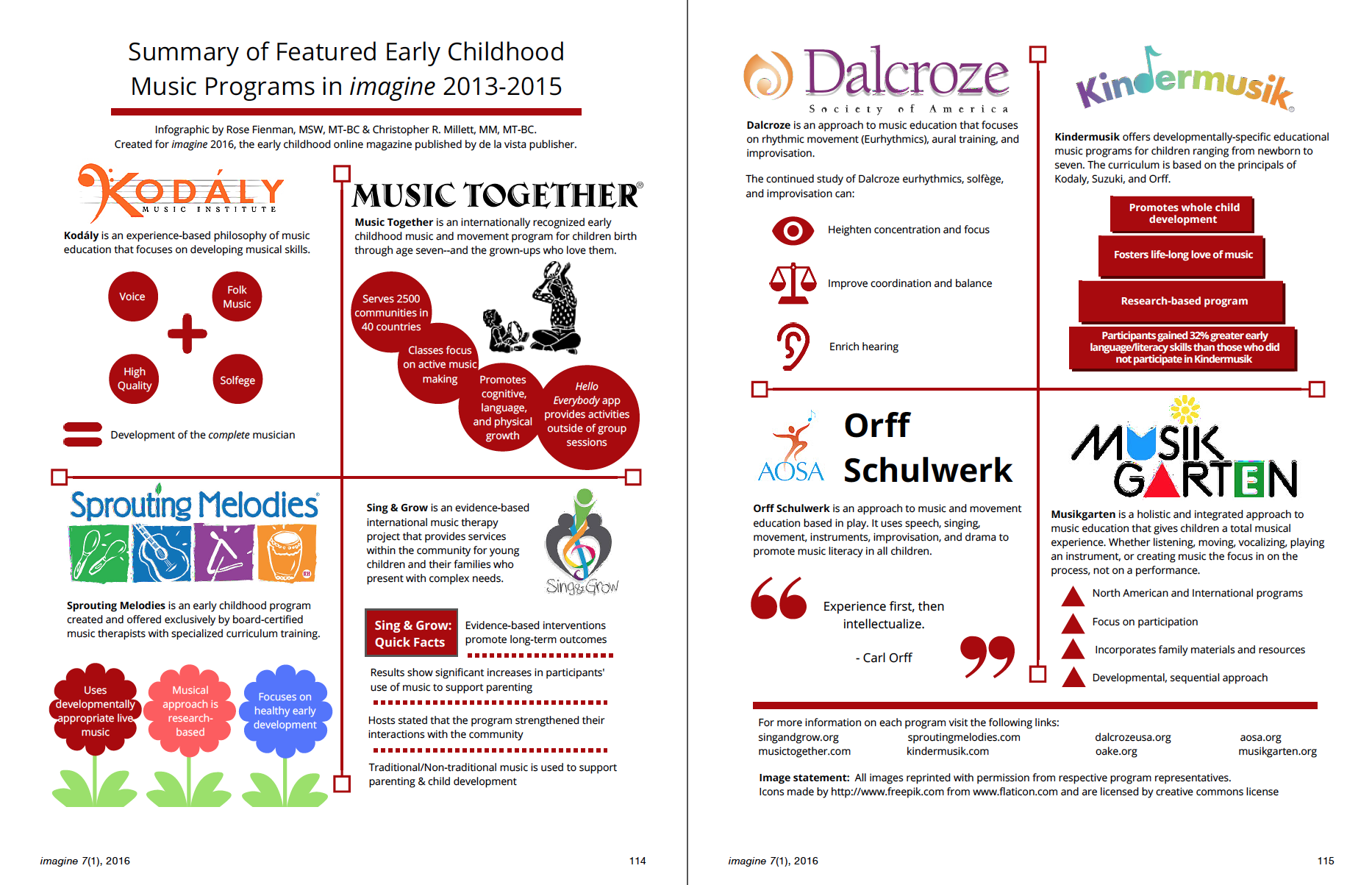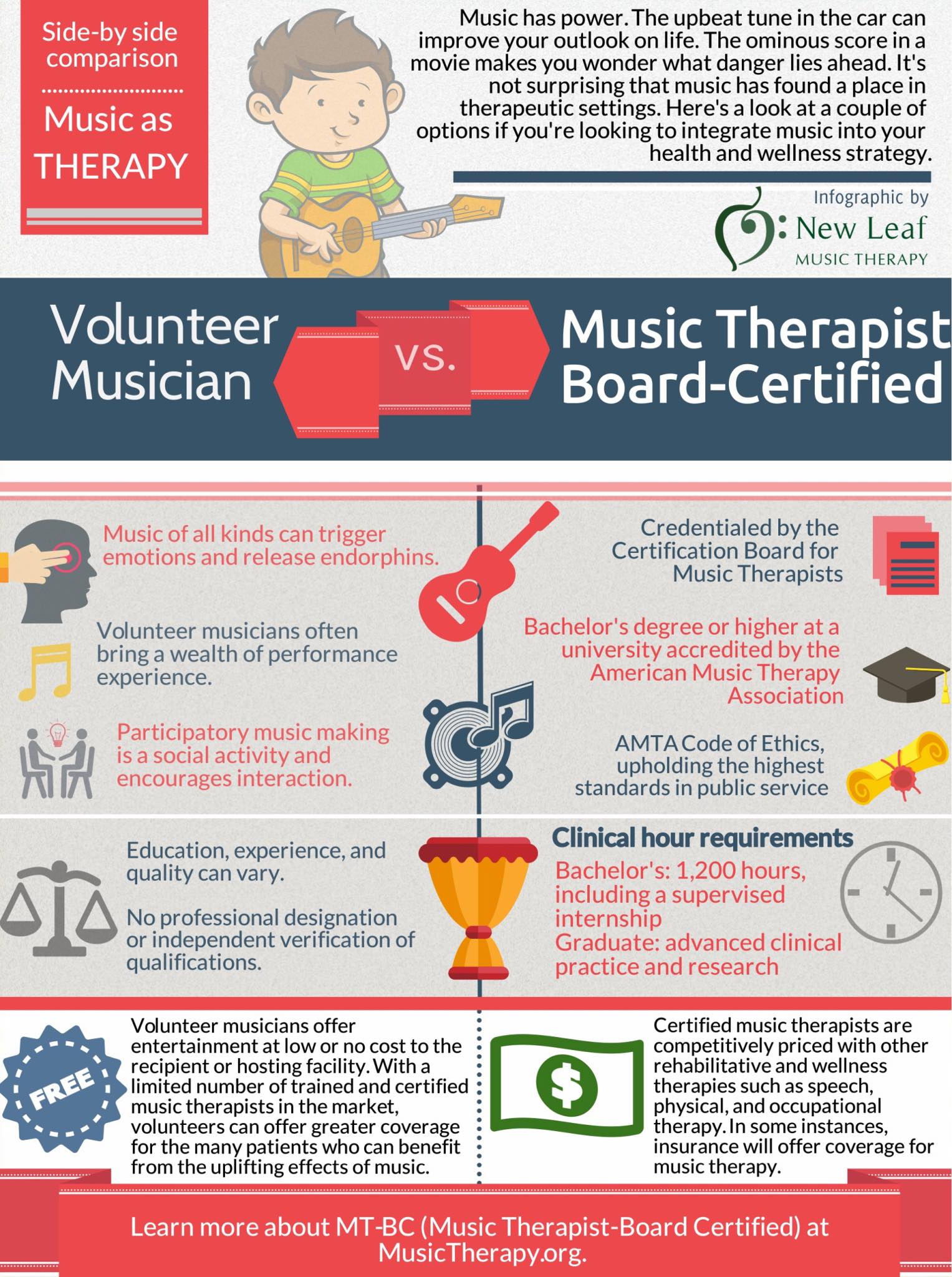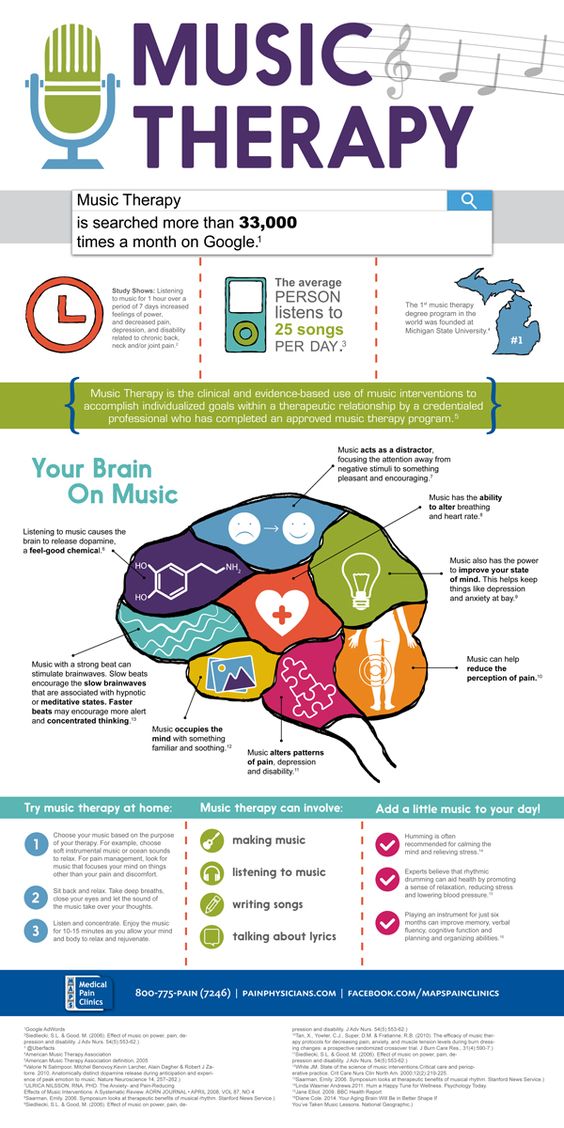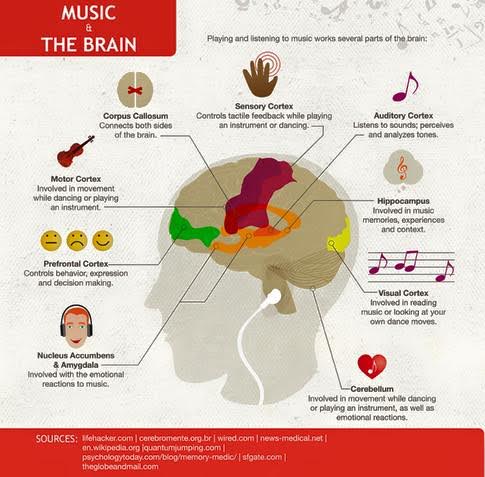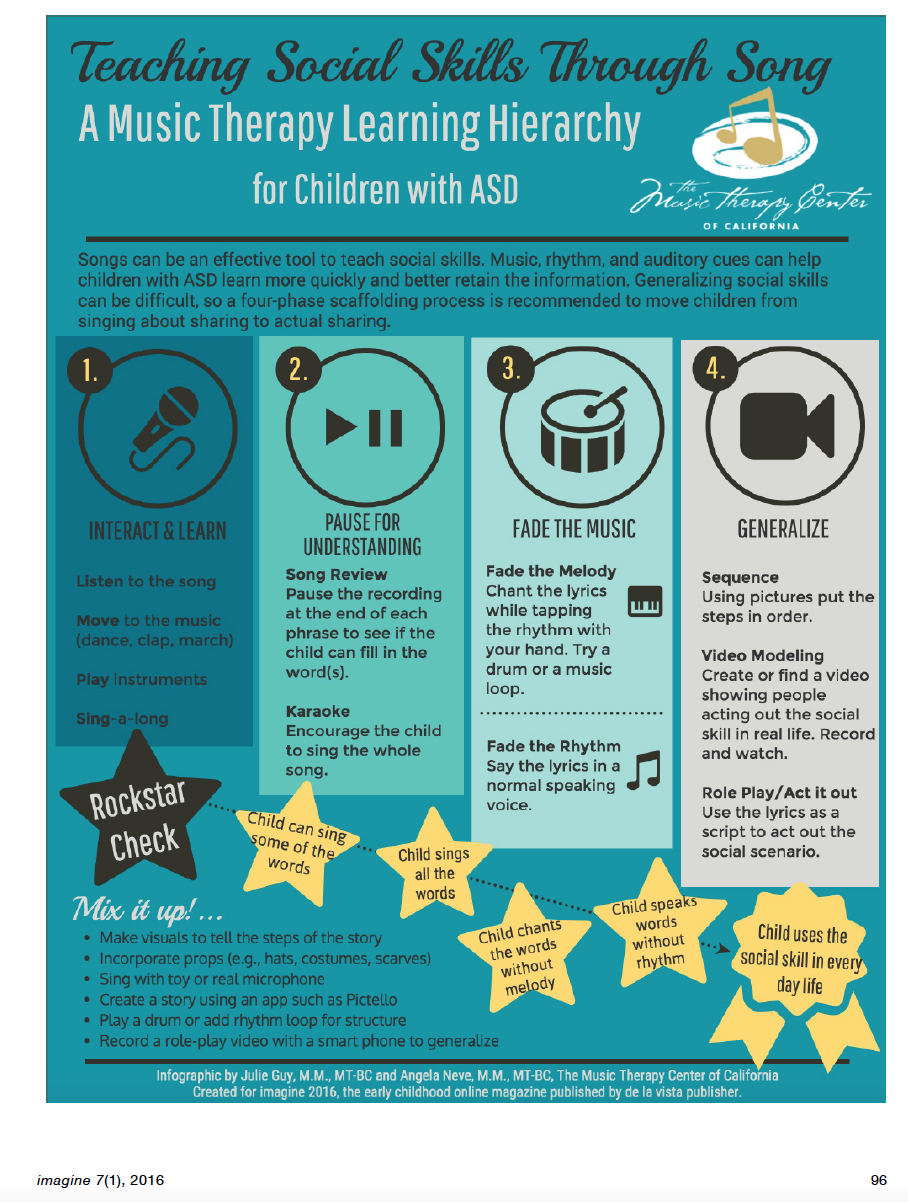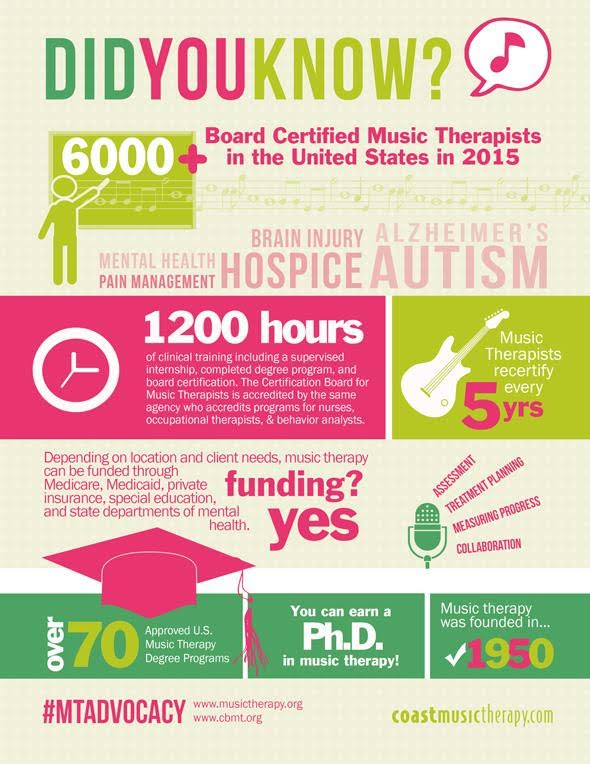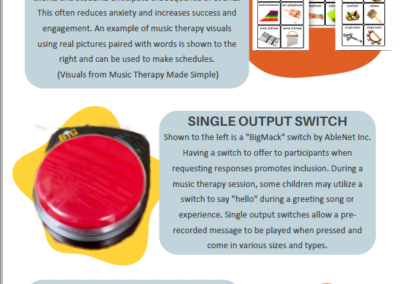Music Therapy
Resources
Starting with FAQs, discover the power and value of music therapy and related information
Infographics
Highlighting facts about music therapy
Videos
Featuring research, practice, and trends
Frequently Asked Questions
Just what everyone asks in an elevator or on social media
What is music therapy?
Music therapy is the professional use of music and its elements as an intervention in medical, educational, and everyday environments with individuals, groups, families, or communities who seek to optimize their quality of life and improve their physical, social, communicative, emotional, intellectual, and spiritual health and wellbeing. Research, practice, education, and clinical training in music therapy are based on professional standards according to cultural, social, and political contexts (WFMT, 2011).
What do early childhood music therapists do?
Early chidlhood music therapist work with young children ages 0-5 and involve family members in every aspect of the therapeutic process.
Using assessment data, early childhood music therapists develop a music therapy intervention plan specific to each child’s abilities, preferences and needs and targeting identified goals (e.g., communication, academic, motor/sensory, social, emotional).
Services are provided in individual or group settings using various music therapy techniques (e.g., singing, instrument play, movement/dance, musical improvisation, listening to music, or digital music activities) and evidence-based strategies (e.g., prompting, reinforcement, visual schedules). Other services provided by music therapists include consultation (e.g., on environmental modifications, curriculum adaptations) or coaching (e.g., on peer-mediated interventions). Family Practice (i.e., family-centered, capacity-building, collaboration), Inclusion Practice (i.e., access, participation, supports), and the use of Interactive Media (i.e., digital devices, apps), are emphazied in early childhood music therapy (Kern, 2020)
https://books.apple.com/us/book/colors-of-us/id1521528038?itscg=30200&itsct=books_toolbox
Is music therapy beneficial for children with ASD?
Yes! Music-mediated interventions, including music therapy are one of the newly identified evidenced-based practices for children with ASD (ages 0-14). Music therapy intervention can improve social communication, play, school readiness, adaptive/self-help, challanging/interfiering behaviors, and motor skill (NACAEP, 2020).
https://ncaep.fpg.unc.edu/sites/ncaep.fpg.unc.edu/files/imce/documents/EBP%20Report%202020.pdf
Where do I find an early childhood music therapist?
Online Directory of the Certification Board for Music Therapists: https://my.cbmt.org/cbmtssa/f?p=CRTSSA:17800:16584957732158:::17800p::
Online Directory of the American Music Therapy Association: https://netforum.avectra.com/eweb/DynamicPage.aspx?Site=amta2&WebCode=IndSearch
NICU-MT Registry: https://www.music.fsu.edu/NICU-MT/nicu-mt-registry
How do I become a board-certified music therapist?
You must complete a university-based degree program in music therapy and 1200 hours of supervised clinical training and/or supervised work experience. Additionally, you need to pass a national certification exam administrated by the Certification Board for Music Therapists (CBMT). The newly released digital badge issued by CBMT guarantees that you are able to practice music therapy with the highest level of proven, current music therapy knowledge using clinical and evidence-based music interventions. This knowledge is enhanced by a program of required continuing education and renewal every five years (CBMT, 2020).
What is the status of music therapy worldwide?
Professional music therapists worldwide are well-educated, mature professionals with adequate work experience, who are confident in providing high quality services primarily in mental health, school, and geriatric settings. Due to ongoing challenges related to recognition and government regulation of the field as an evidence-based and well-funded healthcare profession, most individuals work part-time music therapy jobs and feel underpaid. Yet, many music therapists have a positive outlook on the field’s future (Kern & Tague, 2017).
What are the most prominent music therapy organizations wordwide?
World Federations of Music Therapy (WFMT): https://wfmt.info
European Confederation of Music Therapy (EMTC): https://www.emtc-eu.com
American Music Therapy Association (AMTA): https://www.musictherapy.org
Canadian Music Therapy Association (CAMT): https://www.musictherapy.ca
German Musiktherapie Gesellschaft (DMtG): https://www.musiktherapie.de
Asociación Argentina de Musicoterapia (ASAM): https://asamdifusion.wixsite.com/musicoterapia
Australian Music Therapy Association (AMTA): https://www.austmta.org.au
British Association for Music Therapy (BAMT): https://www.bamt.org
Videos
Best of Dr. Kern’s 4-year vlog series

